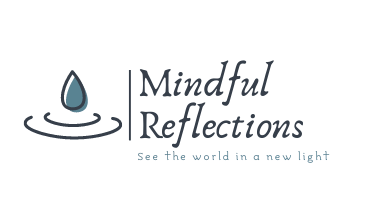How to Care for Someone Who Has Experienced a Traumatic Birth or Pregnancy
We all want to help the people we love when they’re going through a difficult time. But having good intentions doesn’t mean we know to help them in the way they need, especially if we haven’t experienced what they have. Does that mean we should give up on the idea of helping them?
Not all of us have experienced pregnancy or birth. Even if we have, that doesn’t mean our experiences with them were negative. Perhaps we have some fond memories of those times. That shouldn’t stop us from helping the people we care about who are trying to cope with a traumatic pregnancy or birth. All we need to know is how we can help them without accidentally making them feel worse.
Listen to Them
If they decide to open up to us about their experiences, the least we can do is sit down and offer a non-judgmental ear. Talking about traumatic experiences is hard. If someone chooses us as a person worth opening up to, then that’s not something we can take lightly.
And, really, all we have to do is listen to them. It sounds simple, doesn’t it? But it does involve some work on our part. Listening involves paying attention. It’s not something we can just pretend to listen to while we think about something else. It’s also important we avoid interrupting them while they’re telling the story. This person is trusting us with their story, and we should honor that.
Validate Their Feelings
It can be very easy to accidentally make our loved one feel worse when we try to make them better. Usually, it’s because we invalidate their feelings in one way or another. We might think that if we remind them things could have gone worse, then they might feel better about their situation. Maybe we’ll tell them that at least they’re alive, or they can get pregnant again.
But really, that only invalidates their pain. And their pain is valid. Trauma isn’t something that can be measured against someone else’s. It’s not a competition about who has it worse. So, what do we do instead of trying to make them feel better about what happened to them?
We validate their pain. We tell them we know that what happened to them was terrible. We tell them we’re there for them in whatever way they need. We aim to be supportive.
Help With Household Tasks
This is tricky. Some people can be very particular about how they want their household chores done, so it’s always better to ask them first if they’d appreciate some help around the house. But if they do, then why not do something simple for them here and there?
We can cook them a meal when they don’t have time to, or when they don’t have the energy to stand in the kitchen cooking for an hour. We can wash some dishes that have piled up in their sink for them. We can even wash a load of laundry if they have too much piled up. This way, we can help lessen the pressure of daily chores on them.
Ask What They Need
Everyone’s traumatic experiences are different. Even if we’ve had a traumatic pregnancy or birth ourselves, our friend might not need the same kind of help that we needed when we were in that position. Your loved one will know their own needs, so the best thing we can do is ask them what those are. It sounds ridiculously simple, doesn’t it? But it works much better than we might think.
Encourage Them to Seek Help
Just because we want to be there for our loved one, want to take care of them, doesn’t mean we are the most capable of doing so. Sometimes, the people we care about need more help than we can give. If your loved one is not already seeing a professional to deal with their trauma, then don’t hesitate to refer them to us. We can help them heal from what happened to them, and the first step in that journey is to schedule an appointment.
To learn more about how Mindful Reflections can help, check out our Birth Trauma Therapy page.
Previous Posts
Complete Guide to Postpartum Depression
You are not alone.If you’ve found your way here, it’s likely that you — or someone you deeply care...
Can You Have Postpartum Depression After Miscarriage?
Miscarriage is a profound and often isolating experience. For many, the emotional impact is deeply...
Postpartum Therapy for C-Section Recovery: Emotional Healing Beyond the Physical
For many mothers, a C-section can feel both miraculous and overwhelming. While the physical scars...





